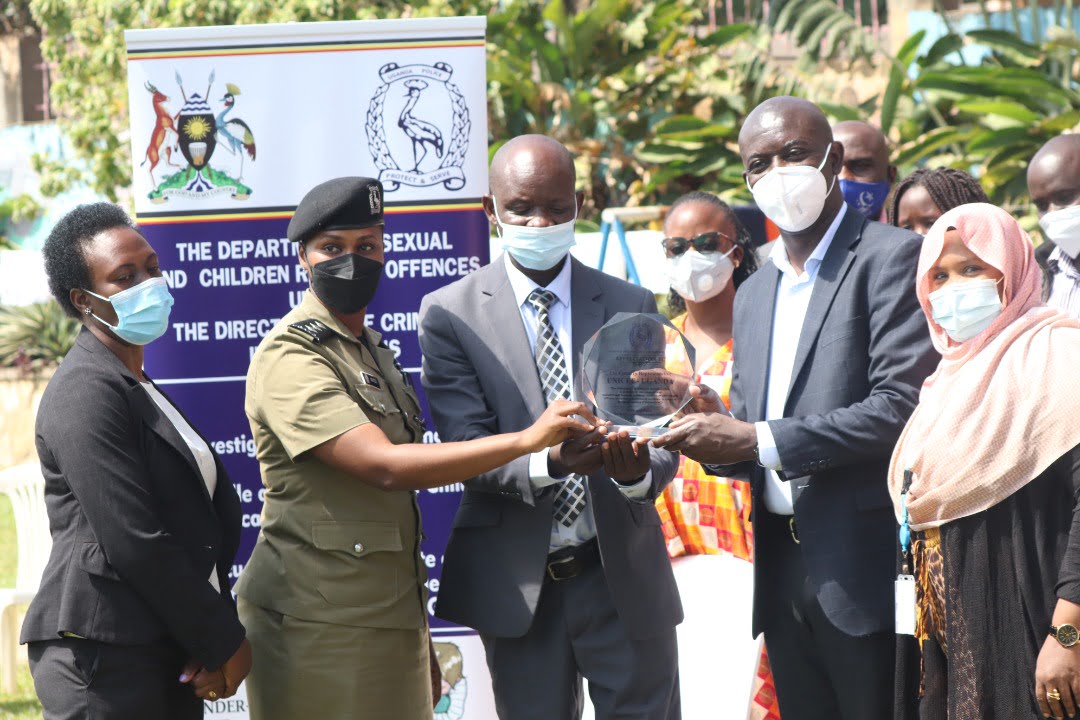
By An Executive Editor
Police’s Department of Sexual and Children Offences is taking the multi-sectoral lane in a bid to secure successful investigation in cases involving Sexual and Gender Based Violence (SGBV) and Violence Against Children (VAC).
This is evident in a 3-day training officially opened Tuesday morning at Unik Hotel in Kyaliwajala, Namugongo.
The over 200 participants include probation officers (Ministry of Gender, Labor and Social Development), clinicians (Ministry of Health), Office of the Directorate of Public Prosecutions (ODPP) and the investigators among others.

Participants are being trained on collection, preservation of forensic evidence and investigations on sexual cases involving children.
According to ASP Lilian Doris Mutesi from the Police Forensics Division, the training will build professional and institutional capacity to better collect, preserve forensic evidence which she says is very key in the prosecution of SGBV/VAC cases.
During investigation of cases of sexual nature, Mutesi says the Desk Investigators are supposed to interview victims and witnesses, visit scenes of crime, arrest perpetuators, collect evidence and and forward exhibits for forensic examination, fill police forms and escort both victims and suspects for medical examination to health facilities and as well coordinate with other agencies like ODPP who give legal advice.
Similarly, Mutesi says medical practitioners are very crucial in interviewing victims, collecting forensic evidence, filling Police Forms (PF3A and PF24A) which is a must that all victims and perpetuators of sexual abuse be examined. The health officers also testify in court, Mutesi said.
However, she says that, “despite various roles the different stakeholders play, there is no link in the provision of services and since these services are scattered, there is a need to train all the service providers together on investigations, collection and preservation of forensic evidence, application of a survivor/trauma centered approach as well as coordination in management of SGBV cases.”
The 2020 annual police crime report indicates that 14134 cases of defilement were reported in the same year compared to 13,613 a year before, giving an increase of 3.8% and 1280 of these victims were children below the age of eight.
Vedasto Nsanzugwanko, UNICEF’s Chief, Child Protection Programme, says whereas the increase is not good, “at least we are happy to see that we are able to gather evidence, the numbers that inform policy, legislation and program. So, we need to take this along with us.”
As UNICEF, Nsanzugwanko says “we are ready to work with police, ministry of health, but also with the private sector and other NGOs. We bank on you and we keep on investing in us to have a country that can be able to protect and respond to issues of child rights violations. We need to have evidence, gather data, we need to have policy and legislation, and we need to have a social work force with capacity and budget. Use this opportunity to share experiences in your area.”
The Assistant Commissioner of Police (ACP), Isaac Okecho, the Commissioner in Charge of Administration in the Directorate of Criminal Investigations urged participants to handle cases relating to Violence and Children and Sexual Gender Based Violence (SGBV) with passion.
ACP Okecho was representing the Inspector General of Police (IGP) Martins Okoth Ochola.
“My message to you, as you do your work, do it with a lot of passion, a lot of love. You will be safer. After all our duty as police and people in the justice system, our cardinal role is to make Uganda a safer place to live in. Similarly, we make the World. We are contributing to global peace. You may not know but you are contributing,” Okecho said.
Okecho says that by investigating the SGBV and VAC cases, the quest is to examine, protect and preserve the evidence.
“What are we looking at? There is only one thing – Justice. Successful investigation depends greatly on what the police, the probation and social welfare officers and the medical practitioners do,” Okecho said.
However, he said priority is key and that it is hard to achieve successful investigations alone.
“That’s why this kind of training is crucial so that the actors are all informed and know what to do. This is the place to build confidence. A place to learn from. You can consult. At the end of this training, we should go home speaking one language, able to coordinate and cooperate,” Okecho noted.






